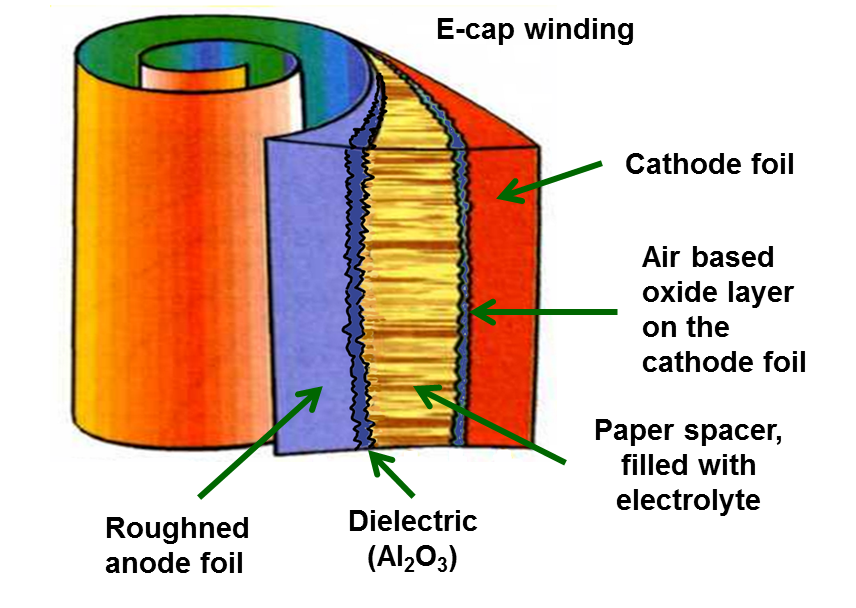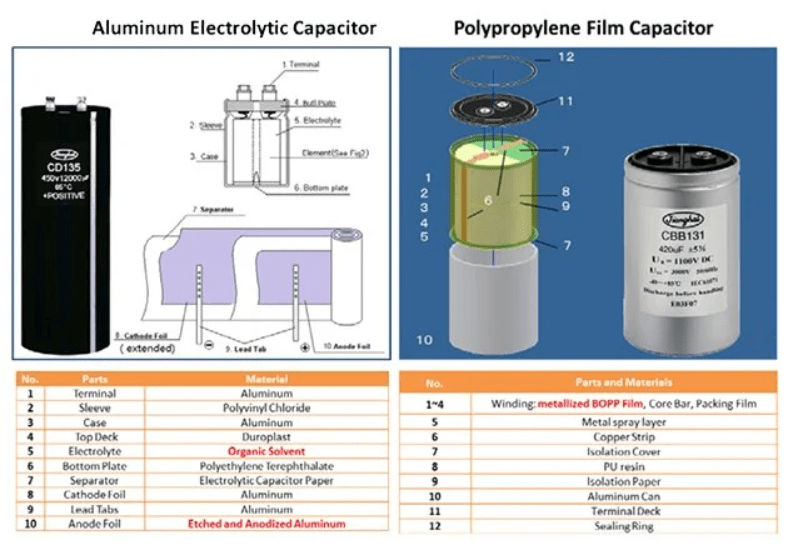A solid liquid or gel electrolyte covers the surface of this oxide layer serving as the cathode or negative plate of the capacitor.
Electrolytic vs ceramic decoupling capacitor.
Mainly we are using ceramic and electrolytic capacitors in our circuits but most of us don t know about the difference between them.
The ceramic capacitor uses a thin ceramic layer as the dielectric medium whereas the electrolytic capacitor uses an ionic liquid as one of the sheets of the capacitor.
An electrolytic capacitor is a type of capacitor that uses an electrolyte in order to increase its capacitance.
In fact many ceramic capacitors i suspect are the exact same part but with different part numbers the same 4 7µf capacitor being sold as both a 35v and 50v capacitor under different labels.
Can a single large multilayer ceramic capacitor replace the classic electrolytic ceramic decoupling capacitor arrangement.
Due to their very thin dielectric oxide layer.
Bias voltage is identical save for the lower voltage one having its graph truncated at its rated voltage.
For this reason decoupling capacitors are added to the circuit in order to smooth out the power supply voltage.
Value of the decoupling capacitor.
Switching type aluminium electrolytic capacitors are commonly used for decoupling applications in low frequency and medium frequency.
There are two main types of ceramic capacitors.
Which type of capacitor to use for matching the data sheet.
Ceramic capacitors are an excellent option for decoupling applications in hf circuits.
Why do some devices use electrolytic capacitors instead of ceramics for small value components.
In addition multi layer ceramic capacitors mlccs are available in a wide range of packages and capacitance values.
Switching type aluminum electrolytic capacitors are commonly used for decoupling applications in low frequency and medium frequency.
A good rule of thumb for digital circuits is to use a single 100nf ceramic capacitor for each logic integrated circuit as well as a single larger up to a few hundred µf electrolytic capacitor per board or circuit segment.
Class 1 and class 2.
The graph of some mlccs capacitance vs.
Ceramic capacitors and electrolytic capacitors are two main types of capacitors that are widely used in electrical and electronic components.
Class 1 capacitors are more accurate and stable over a larger range of temperatures while class 2 capacitors offer more volumetric efficiency more capacitance per unit volume.
Ceramic capacitors are an excellent option for decoupling applications in hf circuits.
So most of the time we d.
The most used type of capacitors for low frequency smoothing is the electrolytic capacitors and the capacitors used for high frequency smoothing are the surface mount ceramic capacitors.
What is an electrolytic capacitor.
In addition multi layer ceramic capacitors mlccs are available in a wide range of packages and capacitance values.









